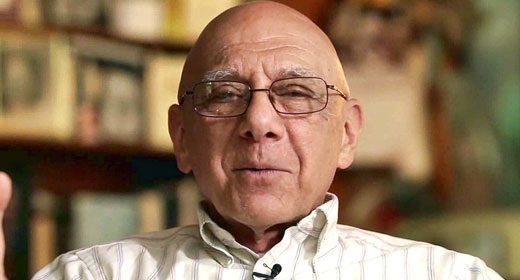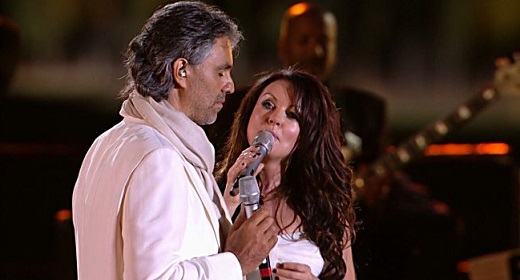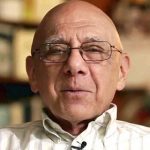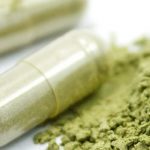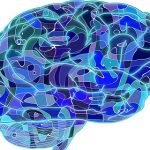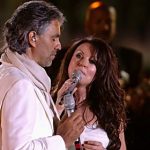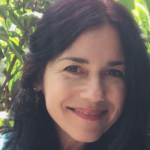Dr. Daniel Kraft: Exponential growth in technology is par for the course at Singularity University, 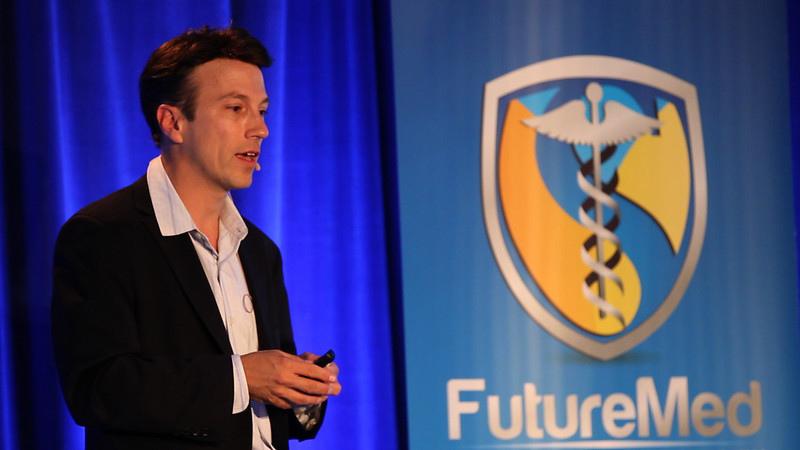
the future oriented institution founded by Ray Kurzweil and Peter Diamandis located at NASA Ames in Silicon Valley. Few fields are developing as quickly as health and medicine, which is why in May of 2011 SU launched a specialized Executive Program called FutureMed.
Focused on accelerating trends such as regenerative medicine, artificial intelligence, and genomics, FutureMed gives attendees a unique perspective on the disruptive changes coming to the medical field. FutureMed returns in 2012 from February 6th to 11th , and is still open for registration ($7500). Singularity Hub spoke with Dr. Daniel Kraft, stem cell pioneer, Medical Chair at SU, and Director of FutureMed. He provides compelling insight into how Singularity University’s latest Executive Program is ready to continue shaping the medical minds of the future.
Singularity Hub: Thank you Dr. Kraft for taking time to answer a few of our questions today. To start us off, could you please tell us about yourself? What is your background, and what do you do in addition to FutureMed?
Daniel Kraft: I became interested in the biomedical world growing up inside the Washington DC beltway… after a summer in high school interning at the NIH – I returned to do a science fair project, and my concept ended up being the 1st to demonstrate a new way to block allergic response (and helped lead to the drug Xolair, from Genentech). As an undergraduate at Brown, I was an EMT (Emergency Medical Technician) and caught the ‘clinical bug’ responding to car accidents and drunk induced twisted ankles around campus.
During medical school at Stanford I was able to mix it up with engineers on campus and in research at NASA-Ames, in addition to immunology research as a Howard Hughes research fellow. I went back East to Boston for a combined residency in both Internal Medicine (at Mass General Hospital) and Pediatrics (at Boston Children’s)- and during that time launched and ran one of the earliest online medical marketplaces the ‘Online Discount Medical Bookstore’… I was also able to engage my passion for flying and airplanes, and joined the Massachusetts Air National Guard as flight surgeon (like a team doctor) a squadron of F-15 pilots. Upon return to ‘Hotel California’ for fellowship at Stanford in hematology/oncology and bone marrow transplantation, I audited the 1st year of the Stanford BioDesign program, and came up with a novel medical device and better way to harvest bone marrow (for transplants and use of marrow stem cells in regenerative medicine) called the ”MarrowMiner” and described in the TEDTalk. The device made it thru FDA and initial clinical studies and is now going through commercialization steps with a startup I founded called RegenMed Systems. I completed a post-doc in the stem cell lab of Irv Weissman and served on Stanford faculty in the Stanford Institute for Stem Cell Biology & Regenerative Medicine, and was lucky to have publications in Nature & Science. I was asked by Peter Diamandis (an MD who is best known for founding the X-prize) to help with a new institution, called Singularity University, where during the 10 week summer programs (starting in 2009), I’ve had the great fortune as faculty to head up the Medicine Track.
SH: Could you give us a quick overview of FutureMed, its history, and its plans for 2012?
DK: I’ve been fortunate to chair the Medicine/Neuroscience track for Singularity Univ. for its first 3 summer graduate studies programs, which brings together 80 participants from 30+ countries each summer. We’ve also run quarterly 5-7 day Executive Programs focused on rapidly developing technologies, for experienced entrepreneurs, senior executives and government officials, investors and others who don’t have 10 weeks. The Medicine Track, seemed to be a favorite amongst participants, given how many fields are starting to impact health and medicine. We decided to try a focused 5-day program, called FutureMed bringing together thought leaders from across the healthcare spectrum and take a look at ‘where the puck is going’… across several inter-related fields.
[Editor’s Note: The following video puts some of the interests of FutureMed into perspective with exciting data surrounding recent developments in medicine:]
[youtube]http://youtu.be/4DwoBWndW1Y[/youtube]
SH: How big is the FutureMed class size and how many times per year do you offer this program?
DK: We offered the 1st FutureMed this past May as an experiment, and were really surprised by the positive response. Its an intimate program, with everyone living on the NASA-Campus, which enables discussions, workshops (including with IDEO), hands-on site visits (including to Intuitive Surgical, Kaiser’s Garfield Innovation Center, NASA labs, and Autodesk). Some synthesis talks from our faculty are available here
We plan to offer FutureMed 1-2 times per year. The next program is coming up this Feb 6-11th. We already have more than twice as many applicants than spots, and do make available some scholarships for medical/graduate students and those from the non-profit world.
[Editor’s Note: Speaking of faculty talks, here’s Daniel Kraft’s short FutureMed video on regenerative medicine and stem cells:]
SH: For a focused executive program like FutureMed, who are the prospective students, and what sort of expertise do they bring to the session?
DK: One of the interesting things about FutureMed (and many of the programs at SU) is that most of the participants are incredibly accomplished and could also serve as faculty. We endeavor to have a mix of physicians, other clinicians, innovators from the biotech, medical device and pharma worlds… and those involved from legal, regulatory and investment worlds. Anyone who is forward thinking, and wants to anticipate where things are heading in healthcare would benefit.
SH: Why should a prospective student choose to attend FutureMed instead of simply reading science journals, attending conferences, and other typical means of extended medical education?
DK: *We don’t really call them students, but more ‘participants’.
We are living in very fast paced times… from the explosion of genomic data (less than $5K for a whole genome sequence today down from millions per sequence a few years ago), to the world of mobile devices & apps, increasingly powerful artificial intelligence (think IBM Watson) , telemedicine, point of care diagnostics, robotics, and more…
Most traditional medical conferences, are very ‘domain’ specific… cardiology, hematology etc… and generally don’t have a cross-disciplinary mix, specifically looking at what is both cutting edge, and where things are heading, particularly where fields converge
We specifically ask our faculty to predict what is coming downstream, where are the challenges (from regulatory to reimbursement), and how may field, specialities and technologies come together in novel ways to help solve major problems in health and medicine, ranging from public health to better ways to treat and cure cancer.
SH: What are the experiences of a typical ‘participant’ while at FutureMed?
DK: Participants in FutureMed at Singularity University (called ‘SU’ for short, which we often joke stands for ‘sleepless university’… We start the program with an ‘introduction to exponential’s’ including a talk and discussion with Ray Kurzweil (SU co-founder, inventor and futurist), and a short sessions exploring where AI, Robotics, IT are heading on the exponential curve. This year Prof. Steve Quake, co-chair of BioEngineering at Stanford will close out this session with some of his remarkable work on point of care diagnostics through microfluidics and genomics. Later sessions are focused by track and faculty and interactive panels will delve into arenas such as data driven health, and regenerative medicine. Break will enable interaction with many technologies in our ‘Demo’ area, and site visits to Kaisers Garfield innovation center, AutoDesk, and Intuitive Surgical will be integrated with hands on workshops and even an ‘Unconference’. On the Friday evening of Feb 10th, we will have a larger event at the computer history museum, to include talks and demos from the lead physician from the IBM Watson team, the CEO of EksoBionics, Stem Cell Pioneer Hans Keirsted and a demo of wearable electronics.
SH: What sort of expertise will participants have after graduating from FutureMed?
DK: In general, an exponential mind set, recognizing technology trends, and opportunities… to go ‘where the puck’ is headed, and to help shape the trajectory of the puck as well. New colleagues, connections, and perspectives….
-Exposure to leading thinkers, practitioners, innovators across 6 core areas
-Data Driven Healthcare (from mobile health, to Apps and dramatically improving imaging technology)
-Personalized Medicine (including genomics, as we approach a $100 genome)
-Regenerative Medicine (from stem cell based therapeutics, to regenerative compounds)
-Neuromedicine & Neurotech (from Brain Computer Interface to new cocktails for Alzheimers)
-Global Health (e.g. ways to leverage technology to better prevent, detect and respond to pandemic diseases)
-The Future of Medical Practice (from Electronic Medical Records (EMR) to integration of Artificial Intelligence, to mobile Apps).
-The future of Intervention (Robotic surgery, telemedicine, newly integrated smart devices, and pharmaceutical approaches)
SH: FutureMed promises to cover a wide range of emerging trends in science and technology, including stem cells, synthetic biology, robot surgery, and nanomedicine. Is there a clear forerunner among these emerging fields in terms of potential in the next ten years?
DK: Each of these fields is moving relatively quickly, though clearly there are often very significant regulatory (FDA) and reimbursement issues before they translate to generally available. In fact some of these technologies will further develop outside of the US, and even in the developing world before we see them here. In terms of highest near term potential, I think the realm of ‘mobile’ health, with the proliferation of smart ‘app’s and integrated, connected devices, soon to have elements of ‘artificial intelligence’ to enhance prevention, tracking and compliance will have the biggest impact and ability to improve outcomes at a lower price in the next decade.
SH: How do you think FutureMed (and Singularity University as a whole) will impact the very technologies they discuss? Is there a long term goal for FutureMed shaping medicine in the years ahead?
DK: Singularity University and FutureMed I think in a unique way, bring together individuals, technologies and organizations from disparate fields and help them see the world with a new perspective, both in understanding some of the major challenges as well as new ways to apply technologies to address them. We hope that FutureMed continues to foster new ideas, collaborations, and possibilities, and can help frame some of the opportunities and solutions which we and our colleagues are helping to develop to improve the face of wellness, prevention and healthcare across the planet.
SH: Again, thank you Dr. Kraft for your time and insights into FutureMed.
DK: Thanks.
[image and videos courtesy of Singularity University]

